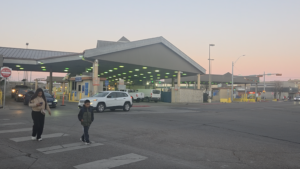Trumps birthright order blocked for 14-days following lawsuit
UNITED STATES – A federal judge declared a temporary 14-day restraining order on President Trump’s executive order that attempts to remove the birthright citizenship for immigrants after a lawsuit by plaintiff states on Jan. 23.
The states of Washington, Arizona, Illinois and Oregon filed the injunction, citing the order was a violation of the 14th amendment, which states “any person who is born or naturalized in the U.S. will become a citizen in the state they reside in.”
The injunction states that if the executive order were to go through, the states’ will be harmed by directly losing federal funding in order to “incur substantial costs to provide essential and legally required medical care and social services to resident children subject to the order.”
The injunction continued to argue on behalf of its states’ residents, stating that by depriving them of their constitutional right as a citizen, the order would also deprive them of any associated right of being a citizen; subjecting them to the risk of deportation, loss of medical care funding and negative impacts on their education.
Trump’s administration claims the 14th amendment “has never been interpreted to extend citizenship universally to everyone within the United States.”
Alvaro Corral, a UTRGV political science assistant professor, said if the case does reach the supreme court, congress will have to agree with Trump’s interpretation of the 14th amendment to make the order legal.
“Trumps understanding and argument is because undocumented persons, or persons who are who are actually not here legally but are not legal permanent residence, if they have a child, that child is not to be automatically given U.S. citizenship,” Corral said.
On Thursday, a hearing will take place where both parties will present their arguments.
Executive order on immigration calls for mass deportations
UNITED STATES – Another executive order signed by President Donald Trump was the approval for mass deportation across the country. However, this action will be different, with the new approach being led by expedited removal.
Expedited removal is the act of deporting an undocumented individual on the spot who has not been in the U.S. for more than two years.
In 1996, expedited removal was added to the Illegal Immigration Reform and Immigrant Responsibility Act but only affected those who were near the border by 100 miles.
The executive order signed on Jan. 20 modified the law and it will now affect any immigrant residing in the country.
If ICE stops an individual who has been in the U.S. for more than two years, but they do not provide proof of citizenship, the individual will be subjected to deportation without a trial.
Ricardo Ramirez, an immigration attorney, explained it is important for individuals to carry proof of residence, dating back to years.
“Have small copies of the birth certificates and I’m advising my clients to create a little short package showing ties to the U.S. and the length of time in the U.S.,” Ramirez said.
“If ICE pulls over one person on their way to work because they have an administrative or judicial warrant with one specific person’s name, while they are there, they may very well question other persons in the vehicle or public area,” Corral said.
Angry Tías and Abuelas is a nonprofit group that helps advocate for immigrants and guide donations toward the funding for shelters in Reynosa.
Joyce Hamilton, a member of Angry Tias and Abuelas, said they used to raise funds for three shelters in Reynosa, but now they have become an advocacy group for migrants stuck waiting for asylum.
“It’s always been our goal to as much as possible to stay very focused on those people who are going through the system,” Hamilton said. “We also understand the situation that some families find themselves in when they have no hope of an asylum court date and are you know literally stuck in Mexico and can’t get any further an in some cases have been deported and cannot go anywhere else and are in danger in northern Mexico. We do what we can to advocate for providing safety for them.”
Following the executive order issues, Texas Governor Greg Abbott directed state agencies last Wednesday to assist the Trump administration with its Border and Homeland Security operations.




